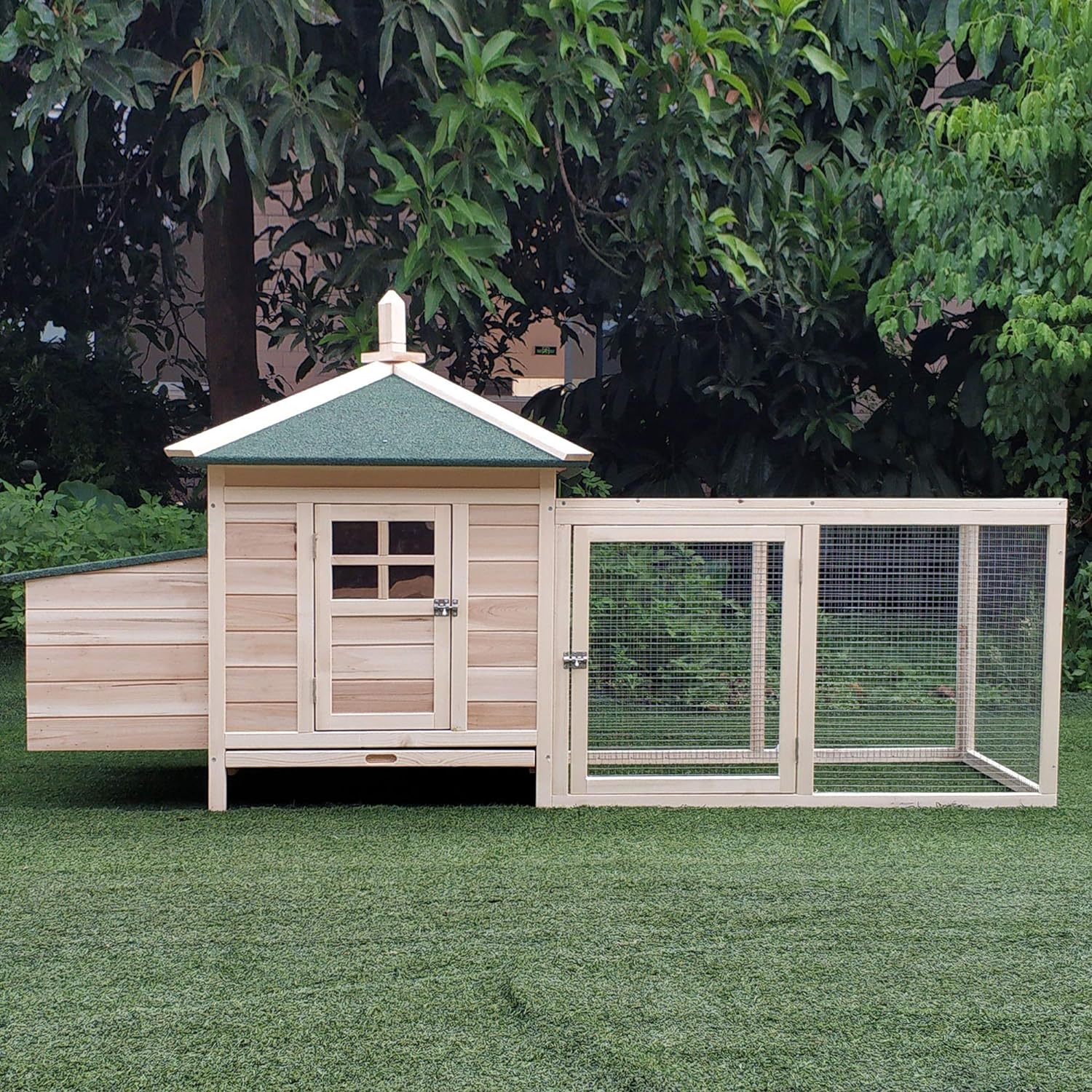
Wooden Chicken Coops FAQ & User Guide
What is the best flooring for chicken coops?
Several flooring options are suitable for chicken coops. Wood is the most common choice, but it's important to ensure it remains dry and free of any chemicals. Always provide sufficient bedding for your birds, such as hay or pine litter, which can be found at feed stores.
Where should I position my chicken coop in my backyard?
Ideally, place your chicken coop in a quiet corner away from your house. Opt for a high, well-drained area with ample air movement but no drafts. Good ventilation helps remove excess moisture, ammonia, and carbon dioxide produced by the hens. Position the coop where it receives plenty of sunlight throughout the day, particularly from the south.
How tall should the side fences be for the chicken yard? Is 6 feet sufficient?
A six-foot height is standard for poultry fencing and is generally sufficient. However, some cases of chickens flying out even at that height have been reported.
What is the best material to spread on the coop floor?
Sand and sawdust work well and can be used in both wet and dry climates.
How much space do I need in my chicken house and run?
Allow a minimum of 1 square foot per bird inside and 4 square feet per bird outside. Keep in mind that chickens tend to huddle together at night.
Will painting the interior of the coop pose any health risks to the hens?
If the paint used is non-toxic, well-dried, and the coop is well-ventilated, it should not harm the hens.
How many nest boxes do I need?
Generally, provide one nesting area for every two hens.
Wooden chicken coops maintenance
Our wooden chicken coops and runs are initially treated with an animal-friendly wood preservative inside and out for the first four weeks. Regularly clean the coop and run on a weekly basis and treat them every six months, preferably before and after the winter season. Apply a high-quality varnish, roof sealer, water repellent, or wood preservative within the first month or before heavy rain, paying attention to all roof edges, eaves, and joints. For outdoor use, apply additional coats of wood preservative. Use rust remover and rust protection paint on the wire for longevity. Always use non-toxic, animal-friendly products. Position the coop and run in a protected area to maintain their appearance. Claims for products not properly protected or maintained will not be accepted.